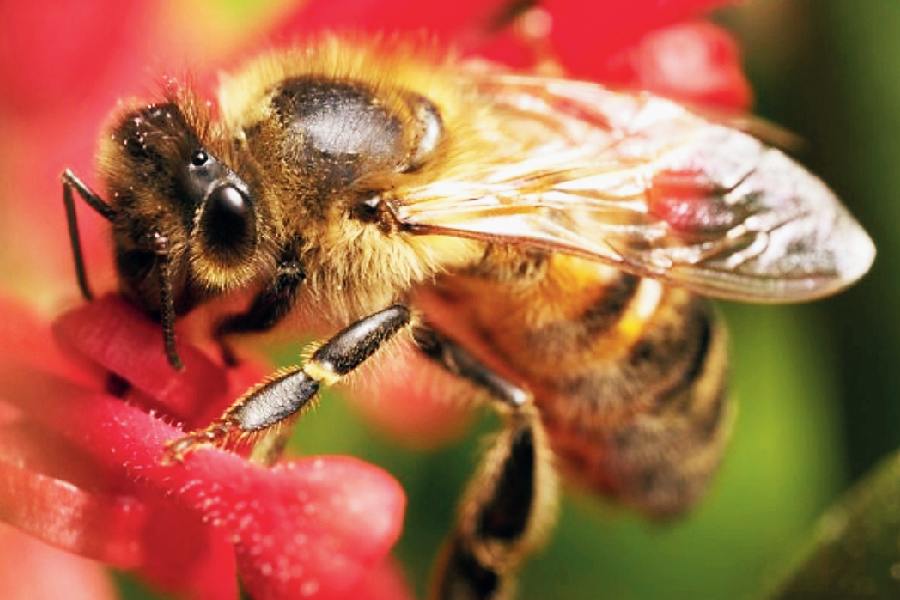A decade-long study by researchers at Nagaland University has identified two species of stingless bees that can significantly enhance agricultural yield and quality through pollination.
The species, Tetragonula iridipennis Smith and Lepidotrigona arcifera Cockerell, were tested under greenhouse conditions and found to improve both yield and quality across a range of crops, according to a statement issued on Monday.
Researchers found that chilli crops pollinated by these bees produced better yields and quality compared to crops that were not pollinated. The study focused on the use of Tetragonula and Lepidotrigona species for the pollination of crops including cucumber, chilli, king chilli, ash gourd, watermelon, citrus, tomato, pumpkin, brinjal and dragon fruit.
To address the pollination deficit in chilli, the study recommends conservation of stingless bees along with honeybee species such as Apis dorsata and Apis florea, and wild pollinators like halictid bees, syrphid flies and Amegiella bees.
“In king chilli, the percentage of fruit set increased to 29.46 per cent compared to 21 per cent in non-pollinated crops. Likewise, in chilli (Capsicum annuum), fruit set and healthy fruit count increased by 7.42 per cent and 7.92 per cent respectively. Seed weight, an indicator of viability or germination, rose by 60.74 per cent when pollinated by stingless bees,” the statement said.
This marks the maiden attempt to work out the pollination potential of stingless bees and quality production of honey.
The research was led by Dr. Avinash Chauhan, scientist and principal investigator (AICRP Honeybees & Pollinators) in the department of entomology at the School of Agricultural Sciences, Nagaland University. His team’s findings have been published in several peer-reviewed journals, including the International Journal of Farm Sciences.










